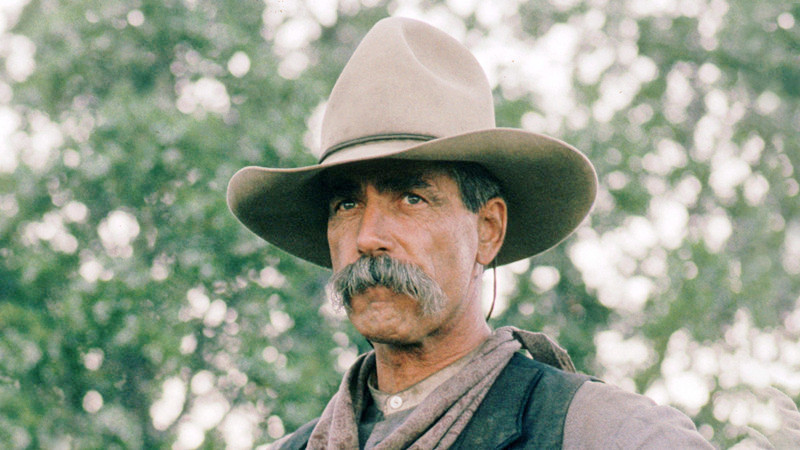
The Western wasn’t dead in the 1990s, it was just harder to spot. After the genre’s Golden Age gave way to grittier revisions in the ’60s and ’70s, the ’80s began to taper off, with only occasional standouts. But the ’90s brought a quiet revival: a trickle of Westerns that may not have cracked the mainstream or won Oscars (Unforgiven [1992] aside]) but still offered something vital—fresh angles on classic themes, grounded performances, and unexpected mood. Whether made for TV or lost in the shuffle of bigger box office hits, these ten Westerns from the 1990s are worth dusting off. They prove the frontier never truly closes, it just changes shape.
It was a decade where genre lines blurred, where cowboys met ghosts, widows passed for men, and bounty hunters stumbled on lost tribes. If the golden age gave us lawmen and outlaws, and the revisionist era gave us cynicism and decay, the nineties Western dealt in reinvention.
1. The Wicked (1991)
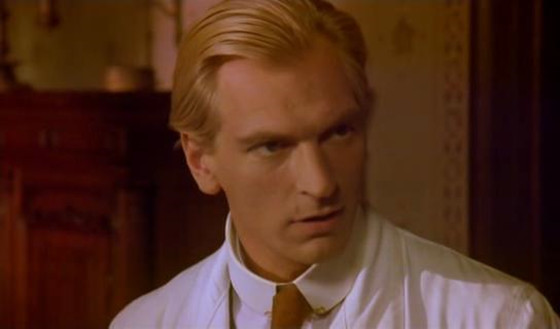
A strange and sparky little outlier that almost feels like a Western via a horror, The Wicked is not your standard genre fare. Set on a barren, haunted stretch of frontier, it follows a family plagued by supernatural forces and lingering past sins.
While clearly a lower-budget affair, it thrives on atmosphere, with a gnawing sense of dread, that something is always watching. It’s about justice, guilt, and ghosts, with as much psychological tension as physical.
Don’t expect gunfights and saloons, this is a Western that leans into myth and mood, more in the spirit of Dead Man (1995) than something like Tombstone (1993). A slow-burner with bite, something that would resurface in the mainstream with Bone Tomahawk (2015) years later.
There’s a raw, almost handmade quality to it, and its power lies not in spectacle, but in implication. In fact, at times, it feels less like a Western with horror elements and more like a horror wearing a cowboy hat.
2. Conagher (1991)
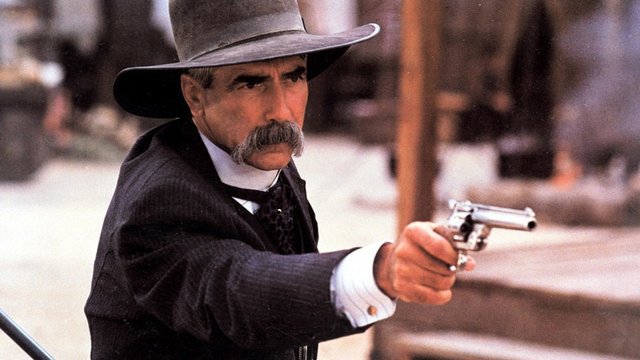
Adapted from a Louis L’Amour novel and made for television, Conagher stars Sam Elliott as a grizzled, laconic, drifting cowboy who forms a tentative bond with a frontier widow (played by Elliott’s real-life wife, Katharine Ross).
Conagher doesn’t reinvent the wheel, but it doesn’t need to, its charm lies in its restraint. This is a Western about loneliness and code, about surviving more than conquering. There is some gunplay, naturally, but it’s the scenes of quiet tension—two people sharing a fire, a letter found wedged in a fencepost that linger.
It’s the kind of film where silence speaks volumes. Elliott’s Conagher is voluble, he’s principled; and in a genre dominated by dominance, there’s something moving in its depiction of emotional struggle, of connection forged not through bravado but patience.
It feels like an old school Western, more intent on feeling and everyday life than pure plot driving action. Earnest, elegant, and deeply rooted in character, Conagher is one of those TV movies that warrants a bigger stage.
3. The Ballad of Little Jo (1993)
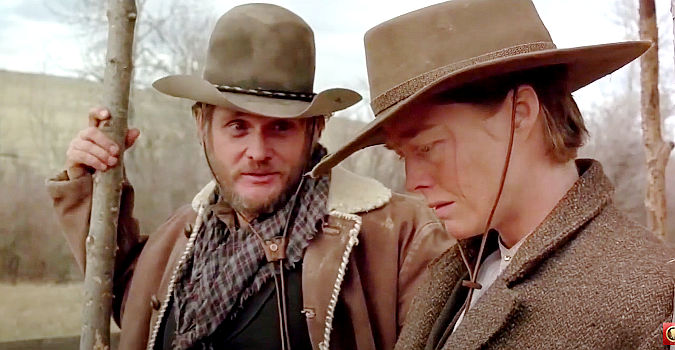
Inspired by true events, The Ballad of Little Jo tells the story of a woman (Suzy Amis) who disguises herself as a man to survive in the rough terrain of post-Gold Rush Montana.
It’s a Western filtered through a feminist lens that still feels rare in the genre, and director Maggie Greenwald brings both grit and grace to Jo’s journey, balancing hard-edged realism with moments of touching dialogue.
Amis gives a powerful, understated performance, and the story doesn’t flinch from the brutality of the world Jo must navigate. A haunting, quietly radical entry in a genre that’s long overdue more stories like this one, directed with aplomb by Greenwald. It pre-dates Jane Campion’s The Power of the Dog (2021) in its quiet portrayal of the Western space and feels decades ahead of its time. The under-marketed poster and its rather plain title, this is one of the most courageous genre entries of the decade.
4. Silent Tongue (1994)
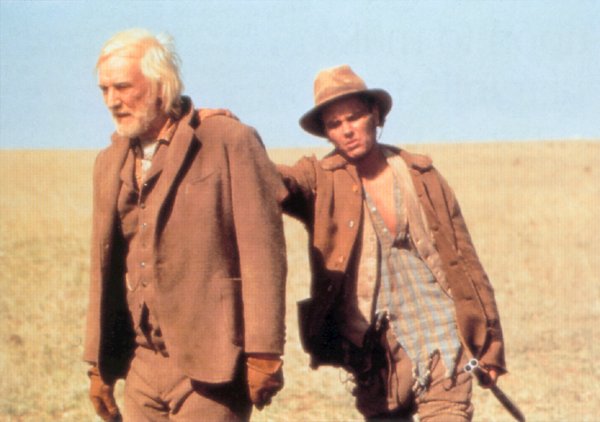
Written and directed by Sam Shepard, Silent Tongue is like no other Western on this list, part gothic tragedy, part fever dream. River Phoenix plays a grief-stricken young man wandering through a haunted landscape, dragging the corpse of his Native American wife behind him in a coffin.
That synopsis alone sets the tone: this is a story about death, legacy, and spiritual collapse. With performances by Richard Harris and Alan Bates that add intoxicating atmosphere to proceedings, the film feels sometimes feels like it’s come from one of David Lynch’s dreams.
Its strangeness alienated many viewers at the time, but its visual intensity and mythic undertones give it an individual identity. A ghost story dressed in cowboy boots if you will. It might at times be messy and sometimes overwrought, but there’s no mistaking its singular voice.
5. Last of the Dogmen (1995)
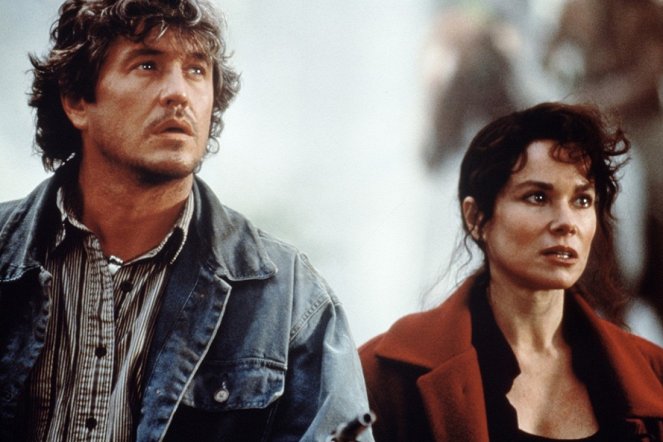
There’s an old-school adventure feel to Last of the Dogmen, which imagines a hidden band of Cheyenne who escaped the reservation system and survived in secret.
Tom Berenger plays the bounty hunter who stumbles upon this hidden society deep in the Montana wilderness. Part The Searchers, part lost-world tale, it fuses action with a kind of wistful fantasy. What elevates it, however, is its sincerity and honesty that drives a line through proceedings.
There’s an earnestness here, a respect for Native traditions that’s not always been present in the genre, especially older entries. The score soars, the landscapes are vast, and Berenger gives a grounded performance that ties it all together.
It might very well play loose and fast with plausibility, but that’s part of the appeal, it’s a Western as a fable, a myth wrapped in melancholy. Barbara Hershey’s anthropologist adds a needed counterbalance, and the films dares to imagine reconciliation instead of conquest. It sometimes feels like a Western about what could have been, instead of what always was, and it’s all the better for it.